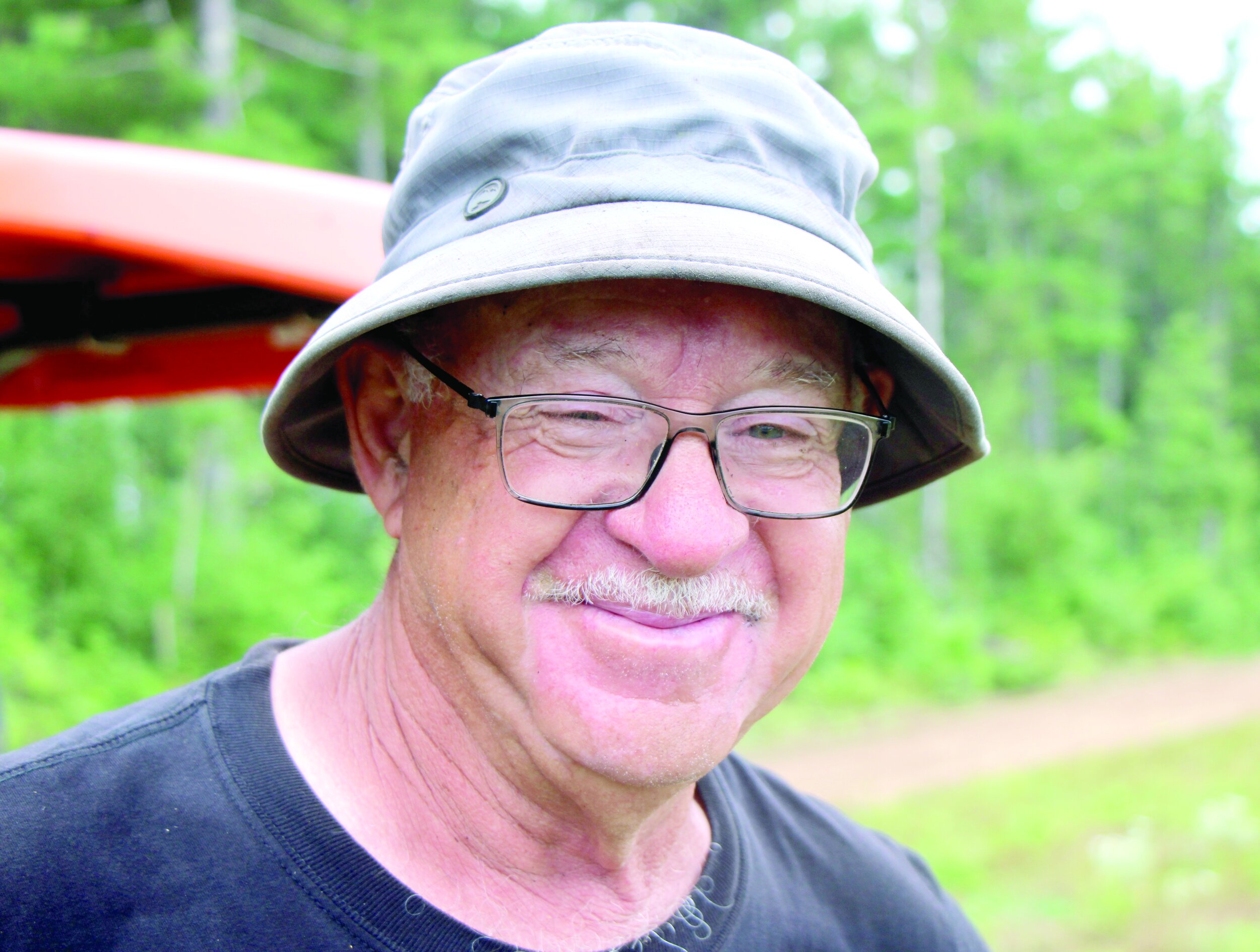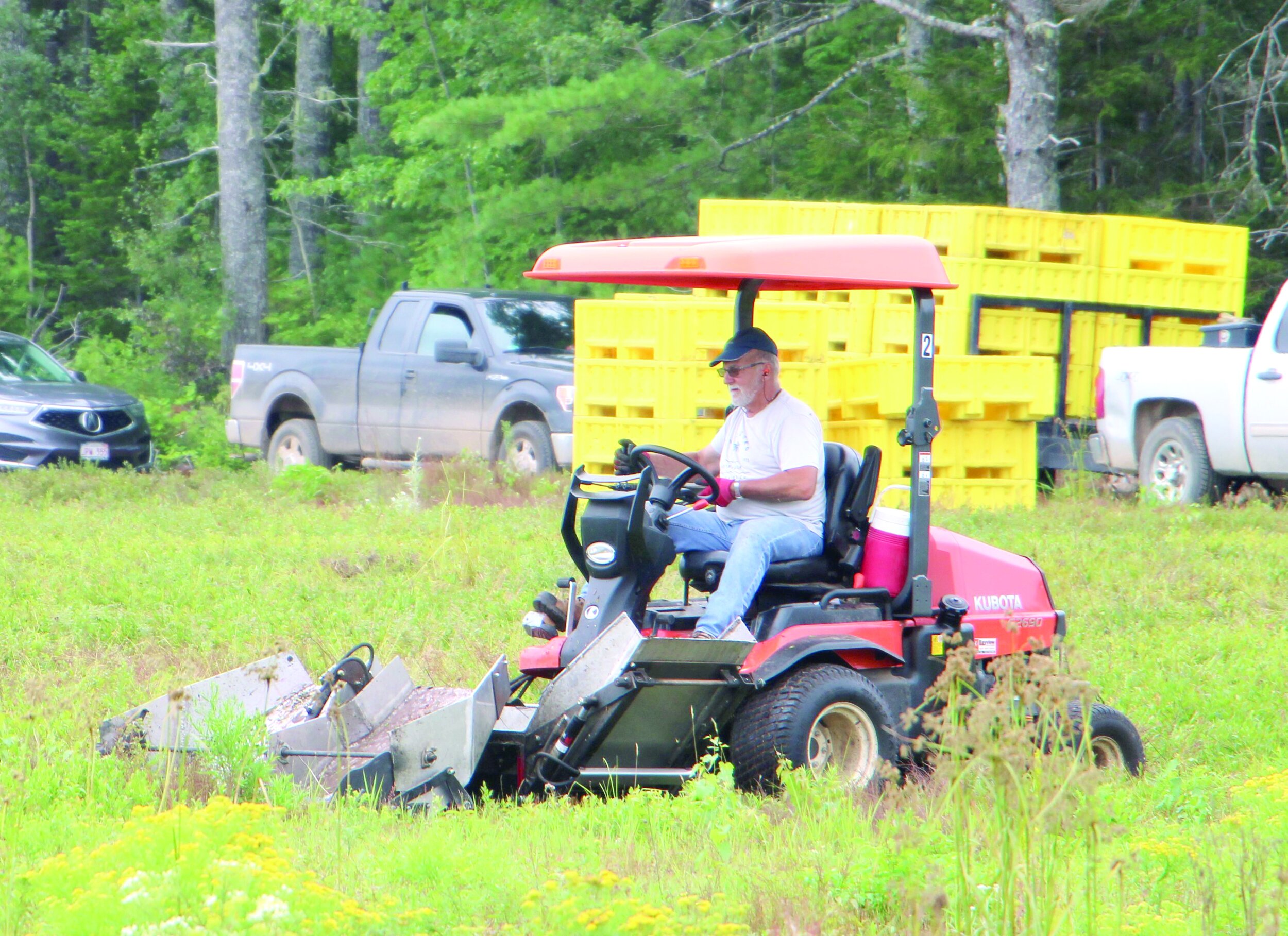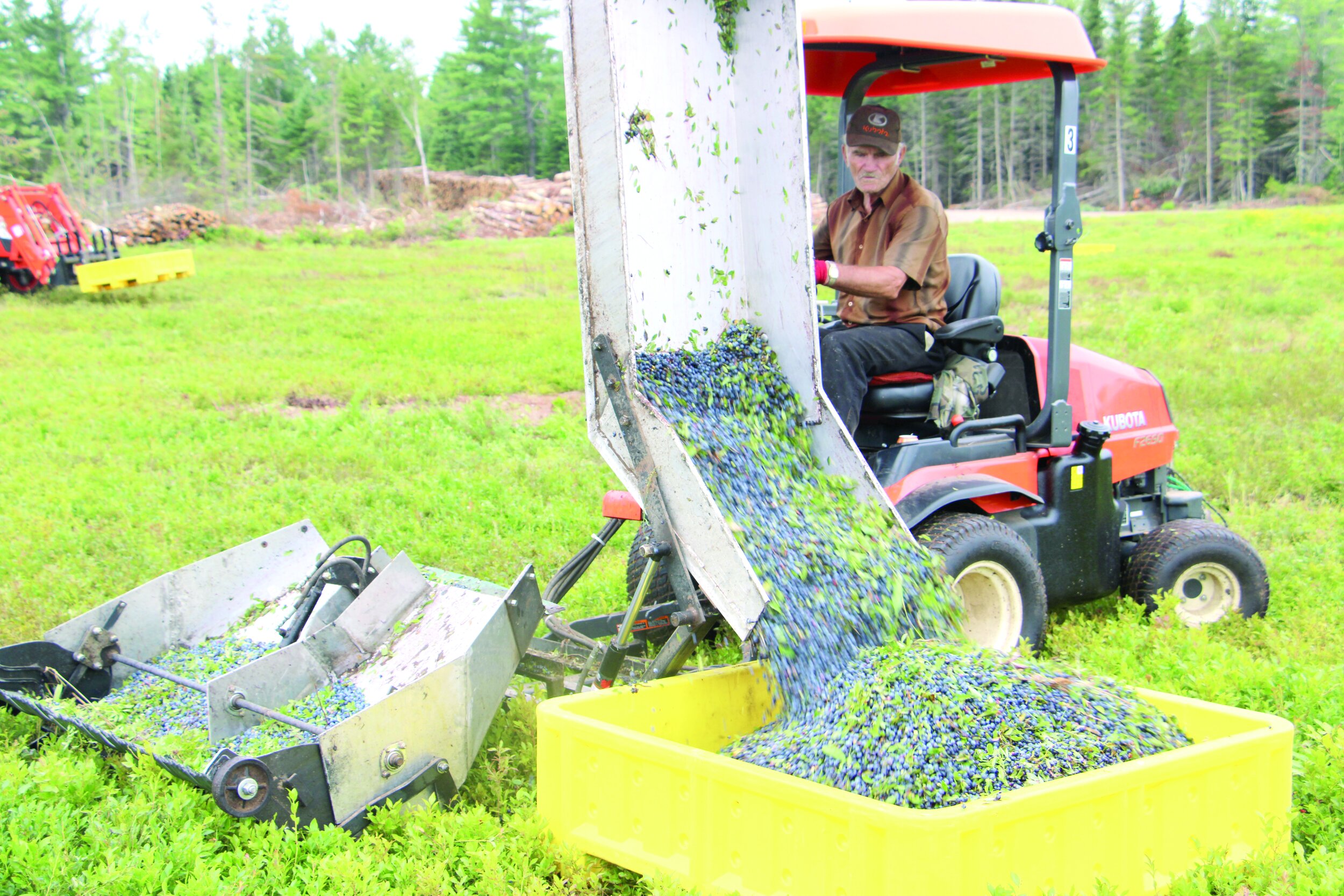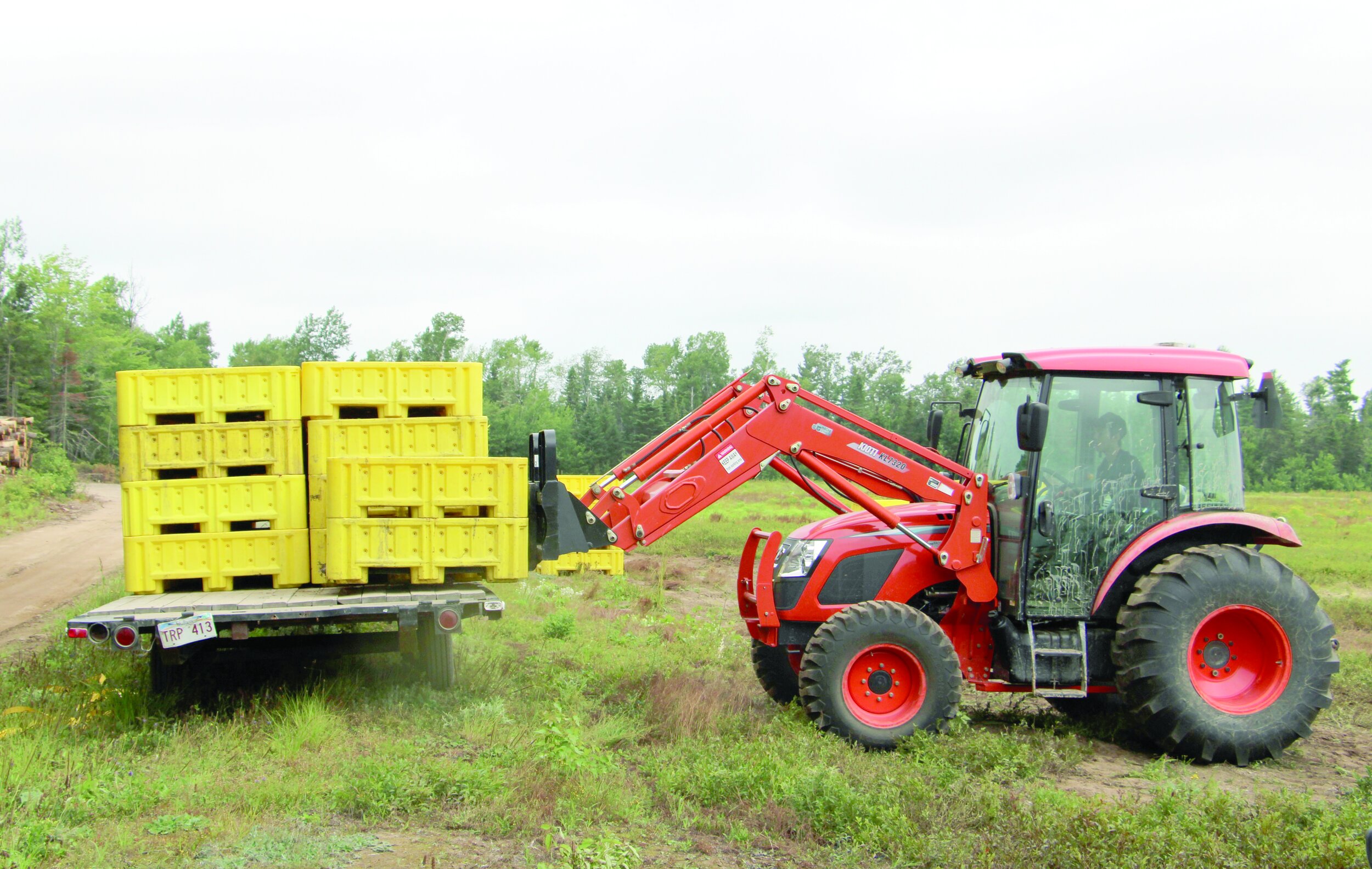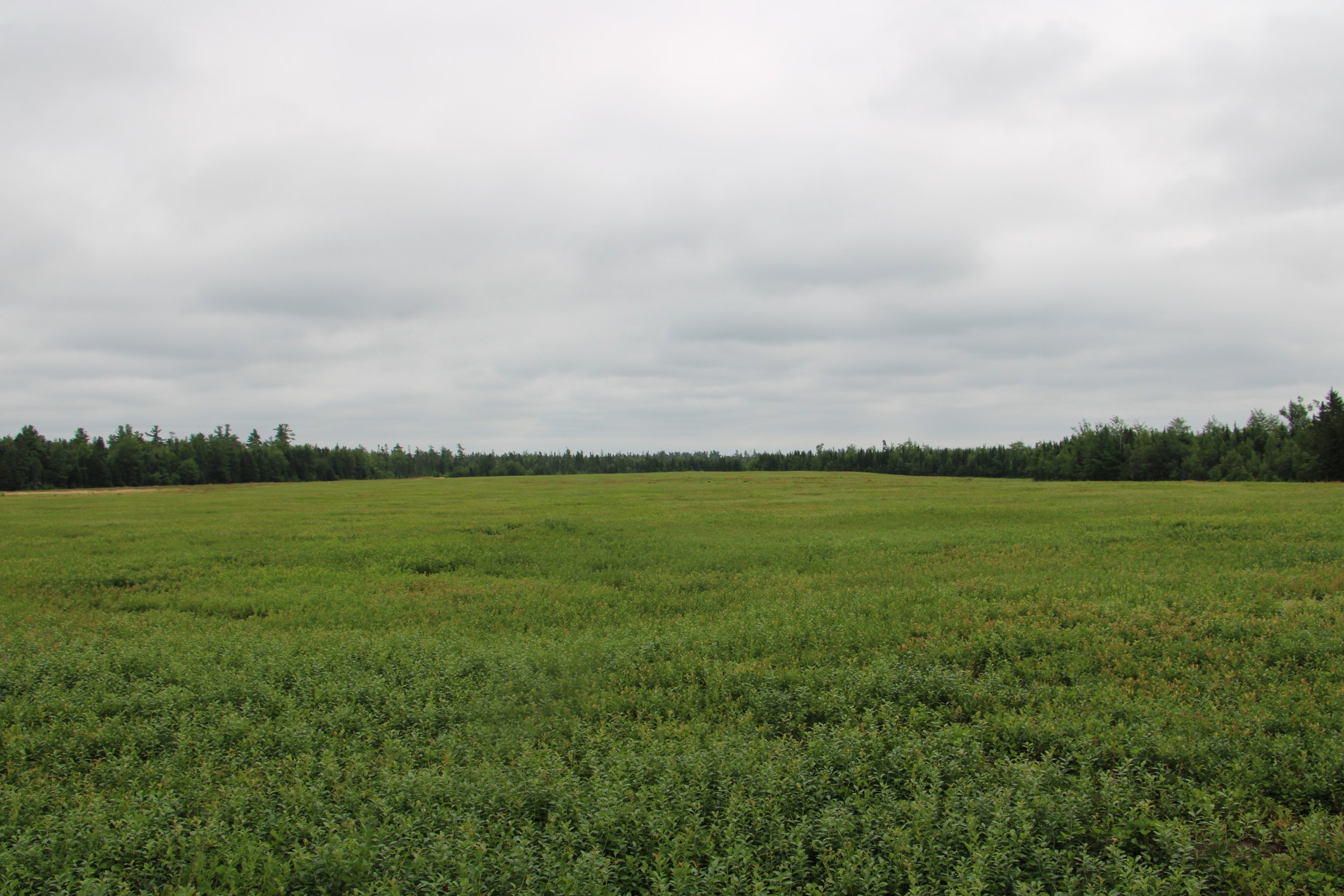“Perhaps blueberries are the best food in the world”
/by George Fullerton
Hector Robichaud became a blueberry farmer in 2000, partially at the encouragement of his brother, who thought the blueberry industry offered good potential.
Robichaud owned a 200-acre woodlot in Sainte-Anne-de-Kent, N.B., just north of Bouctouche, and he had recently retired from a career with the New Brunswick natural resources department’s forest extension service.
Prior to starting down the road to blueberry production, Robichaud had sold stumpage on his woodlot, which had some unharvested patches and a scattering of White pine and hardwoods. The provincial agriculture department inspected the land and determined that there was at least one blueberry plant in every square metre, which indicated that it would be productive for wild blueberries.
Robichaud and his nephew harvested the remaining trees and then had a mulcher grind up all the woody debris and most of the stumps from the initial harvest. As for the fresh stumps, a tractor-mounted implement was used for the smaller stumps and a bulldozer was hired to handle the larger stumps.
Robichaud, who is now 72 years old, has 90 acres of his own land in production, along with more than 20 acres owned by a brother and sister. He also has an adjacent 80-acre Crown lease, of which 45 acres are in blueberry production. Only a portion of the entire acreage is harvested each year.
YEARS OF MOWING
“Blueberries are like alder bushes,” said Robichaud. “If you cut them down, many more sprout up from the rhizomes (underground stems). For the first three or four years, I just mowed the field with a bush hog. I had a contractor level about 20 acres and I moved earth with my farm tractor to fill in some depressions.”
In addition to annual mowing, Robichaud started out using Pronone granular herbicide to control grass, weeds, and other competition.
“I used the granular product because at the time I did not have a sprayer,” he said. “I spread the herbicide with a three-point-hitch fertilizer spreader. In the early years of development, I fertilized with a 15-15-15 fertilizer. Now we get soil and foliar tests done and we focus the formulation to exactly what the berries need for the best production.”
As the field came into shape, Robichaud switched to flail mowing and undertook drainage on wet areas. He made his first commercial harvest in 2008.
“The first harvest, we had about 10 people working for about two weeks,” he said. “At first, we used hand rakes and then we advanced to a small mechanical harvester with bicycle wheels. We have had different types of harvesters. Currently, I have three Kubota turf tractors with DH harvest heads which are made in the Lac Saint-Jean region of Quebec. Each harvester can harvest about one acre per day.”
Every year, Robichaud uses a boom sprayer to apply fungicide (to control diseases such as blight) and a foliar fertilizer product.
He flail mows the non-producing portion of his fields every year, which encourages the wild blueberry plants to spread and set new leaf and fruit buds for the following year’s harvest. He rents honeybees every spring for pollination.
LOW HARVEST
Robichaud harvested 24 acres this summer and averaged about two tons per acre.
“Last year was very dry and it was a very tough growing season,” he said. “Unfortunately, the plants did not set as many fruit buds as we would have liked. So this year, the harvest is low.”
This summer was a better growing season and so Robichaud is hoping to see improved production of at least four tons per acre next year.
“I have a great crew for harvesting,” said Robichaud. “They are in their 70s. Young people for the most part don’t know how to drive a tractor and most are not interested in working outdoors. But I did find a young guy who moves the bins out to the harvesters and then loads the full ones on the trailer. I am very happy with his work ethic.”
Plastic tubs are placed on the ground and berries are dumped into them from the harvesters. They are filled to between 250 and 300 pounds.
“Oxford Frozen Foods buys all my blueberries and they supply the tubs,” said Robichaud of the John Bragg-owned company based in Oxford, N.S. “They are specific about the loaded weight because if they are too heavy, the berries on the bottom will be crushed. Oxford markets high-quality frozen blueberries around the world and crushed berries are no good in their market.”
Robichaud and 10 other producers in the area haul to a shipping depot in the community of Galloway, where the tubs are weighed and loaded onto transfer truck trailers. The blueberries are delivered to the Oxford plant within 24 hours of harvest, ensuring quality and freshness.
VITAL INDUSTRY
The Bleuets NB Blueberries industry organization represents New Brunswick wild blueberry producers who cultivate more than two acres. There are about 200 wild blueberry producers across New Brunswick. The organization is funded by a per-pound levy on marketed blueberries, which supports research, marketing, training, and industry representation.
New Brunswick recorded its largest wild blueberry harvest in 2012 at 45 million pounds. The five-year average harvest stands at around 32 million pounds. New Brunswick blueberry producers account for about 25 percent of Canada’s wild blueberry production.
Wild blueberries are touted for their antioxidants, vitamins, and other micronutrients, as well as their taste and value as an ingredient in many food products.
“Perhaps blueberries are the best food in the world,” said Robichaud. “But keep in mind wild blueberries grow only in the Atlantic provinces, Quebec, and Maine, and that region supplies the entire world.”
More than 20 years after Robichaud started his retirement project, he shows no signs of slowing down.
“I am still having a lot of fun producing blueberries and I still have production goals to achieve,” he said. “For example, a grower near Sackville has produced six tons per acre on an 11-acre field. It is fun to work toward improving production year over year. When it stops being fun and seems like plain old hard work, I will give up farming.”
